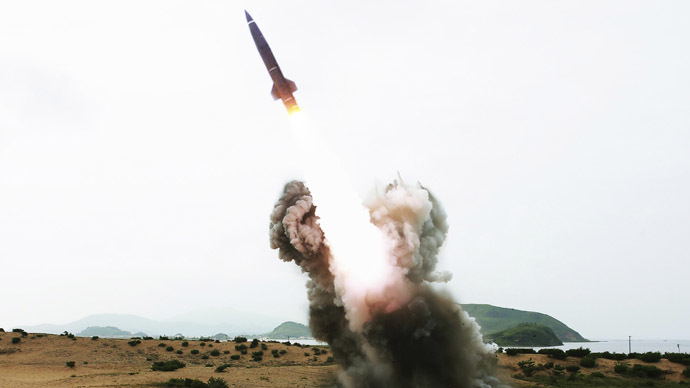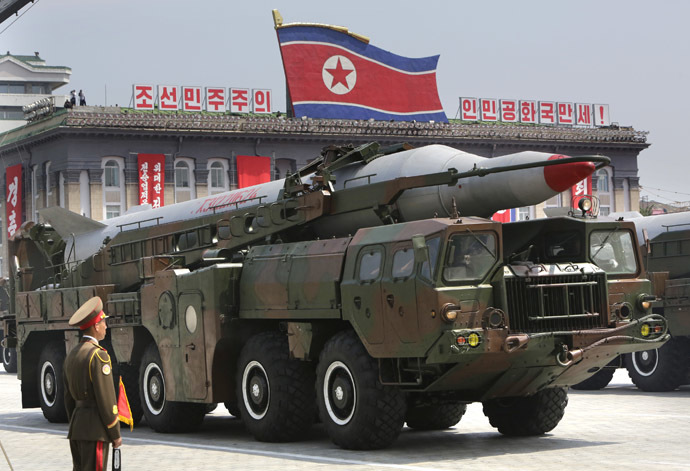US and N. Korea in ‘secret efforts’ to return to talks – reports

Washington and Pyongyang have been trying to restart negotiations over Korea’s nuclear weapons program – with both of them still leading a tough official line while getting engaged into “talks about talks,” US media has revealed.
READ MORE: S. Korea claims Pyongyang has nuclear missiles that could reach US
Senior US officials met with Ri Yong Ho, North Korea’s vice foreign minister and lead nuclear negotiator last month in Singapore. They concluded with the suggestion that the US special envoy for North Korea policy, Sung Kim, should meet with senior North Korean Foreign Ministry officials.
“We have made it very clear publicly that we are open to engagement, substantive dialogue with North Korea about the issue of denuclearization,” Sung Kim said on Friday after a meeting in Beijing failed to take place.
“The question is not what we are willing to do. The question is whether North Koreans are ready for any serious and productive discussions on the nuclear issue,” Kim added.
The venue of the meeting is what is hard. The North Korean side wants it to be in Pyongyang though North Korea still maintains 21-day quarantine for anyone coming from abroad due to Ebola fears.
On Sunday, North Korea said the US had rejected its invitation to visit.
“[We] invited Kim Sung to visit Pyongyang as he expressed his willingness to meet with his counterpart of [North Korea] during his visit to Asia this time,” North Korea’s KCNA news agency cited the Foreign Ministry as saying. “However, the US, in disregard of this, is working hard to shift the blame onto [North Korea], misleading public opinion by creating impression that dialogue and contacts are not realized due to the latter’s insincere attitude.”

Despite the somewhat harsh but standard rhetoric, the idea of “talks about talks” is not off the table, according to the Washington Post’s sources.
“We want to test if they have an interest in resuming negotiations,” a senior US official told the Washington Post. “I think we’ve made it very clear that we would like to see them take some steps first.”
These steps would involve stopping work in North Korean nuclear plants and pledging not to conduct nuclear tests, the source commented.
According to Scott Snyder, a Korea expert at the Council on Foreign Relations, the main problems of the talks will be how to resume them without accepting North Korea’s nuclear status while simultaneously keeping up the pressure.
The US and North Korea already had some successful negotiations in the past, for instance the six party agreement of 2005 when North Korea agreed to abandon its pursuit of nuclear weapons. The talks included the US, Russia, China, Japan, North and South Koreas. The negotiations began in 2003, but collapsed in 2009 when North Korea decided to stop the talks and resume its nuclear weapons program.
READ MORE: Directors of FBI and Office of National Intelligence blame Sony hack on North Korea
The relations between the two countries declined after the release of the film “The Interview,” which describes a plot to kill the North Korean leader, with North Korea being blamed for the subsequent Sony Pictures cyber hack. The US imposed economic sanctions upon Korea and Obama has talked about the inevitable collapse of the regime.
Pyongyang offered to stop nuclear tests in January if the US canceled its joint military drills with South Korea but the US rejected the offer saying the drills are held for security reasons.
READ MORE: US refuses N. Korea’s proposal to suspend nuclear tests, calls it ‘implicit threat’












